Basic Rules
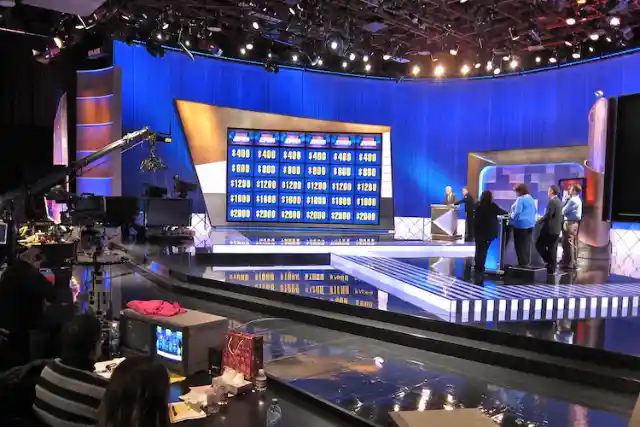
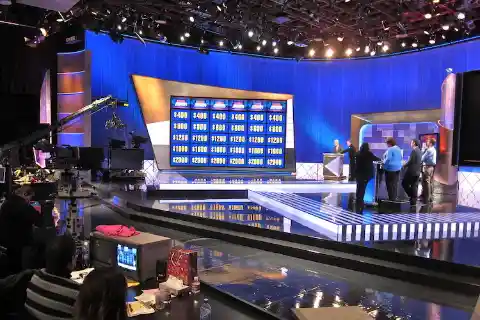
Jeopardy!, in its current format, has been on the air for over 35 years. Until recently, it was hosted by the beloved Alex Trebek, who passed away and left fans of his, and the show, completely and utterly heartbroken.
Trebek announced his battle with pancreatic cancer to the public in early 2019. Unfortunately, he succumbed to it in November of 2020. For much of 2021, the show had many temporary hosts to fill the large shoes Trebek left, from legend Ken Jennings, a former multi-time Jeopardy! champion, to Green Bay Packers’ quarterback Aaron Rodgers, to Katie Couric.
With all of the talk around Alex Trebek’s passing, many people have wondered- are there nuances or secrets from the show that have now been revealed? Well, many stories have come to light, and the game itself has never been more popular. If you’ve been living under a rock, or if you just want to know all the secret stories behind Jeopardy!, here’s everything you’ve wanted to know…
Ways To Play
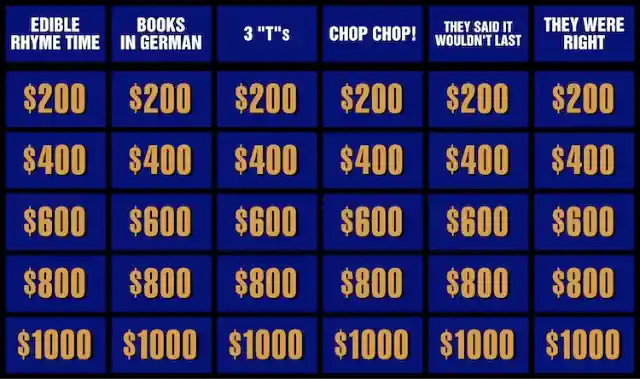
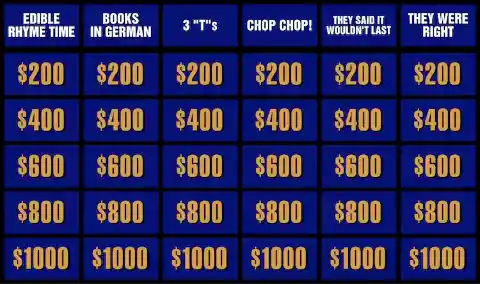
Jeopardy! is a game show that challenges three people to a test of general trivia. The twist is that the host reads the answer as a clue and then contestants hit a buzzer for a chance to respond with a question. Over the course of each episode, contestants compete over three rounds, 13 topics and 61 questions spread across the show’s iconic grid of 30 blue TV screens.
Each correct answer (or question depending on how you look at it) is worth between $200 and $2,000. There’s only one winner per episode. This means that if you come in second place, it doesn’t matter if you’ve gained thousands of dollars during the taping – you get nothing in the end.
The Impact of Jeopardy!
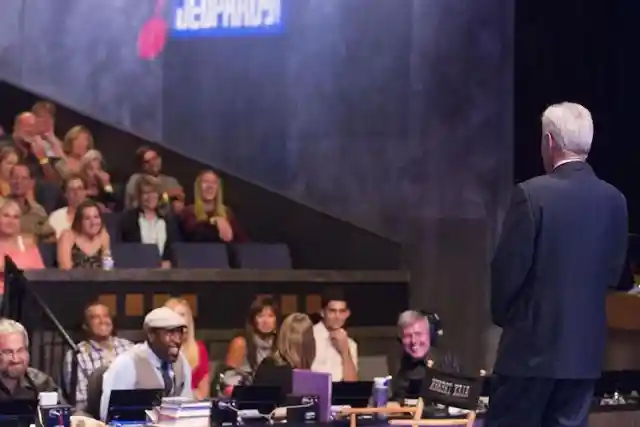
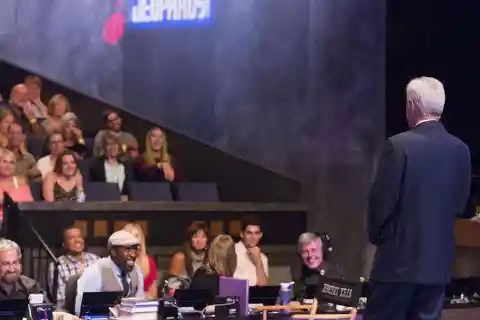
Since most people will never get to play in the real deal game show, there are plenty of other ways to be a part of the Jeopardy! community. It’s also possible to buy tickets to be in the audience.
The New York Times has a clue of the day each weekday. There are several app- and computer- based games to play. Now, it’s even possible to compete against friends and past contestants using actual TV episodes hosted by Alex Trebek.
The Original Game Shows
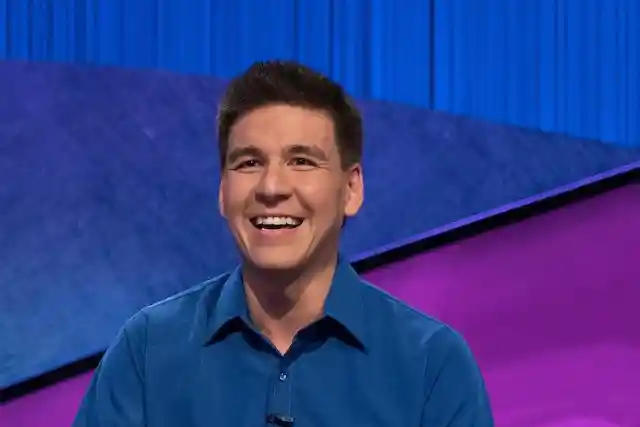
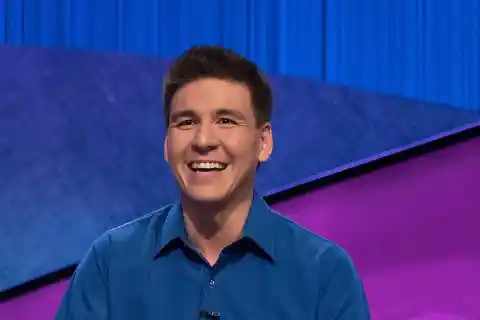
Knowledge, cat-like reflexes and hefty bidding strategies have sent some contestants home with huge winnings. For example, on April 9th, 2019, 32-time Jeopardy! champion and professional sports gambler James Holzhauer wagered $25,000 on a single question. More on that later.
Meanwhile, the show itself turned out to be a winner for both the players and the fans. Different versions of the series air all over the world and there have been several spinoffs. It goes without saying that Jeopardy!‘s impact has been monumental.
Rigged Game Shows Early On
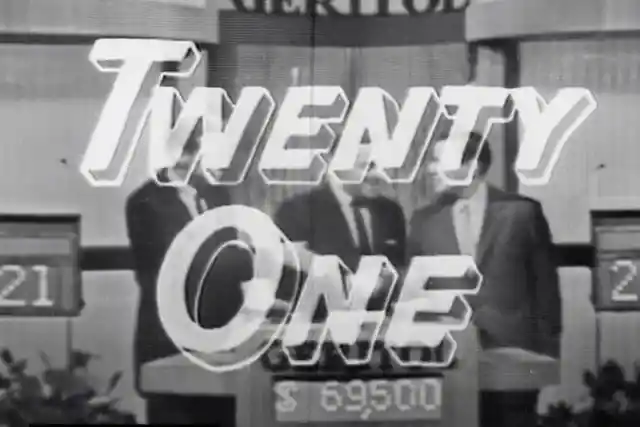
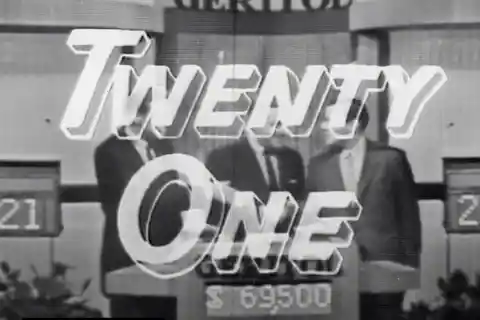
In the 1950’s, a lot of Americans didn’t like game shows because they didn’t trust them. To many citizens, it seemed too much like the sin of gambling. However, once the Supreme Court decided this type of programming was legal, America’s obsession with quiz shows began.
The $64,000 Question and Twenty-One were two competition shows that became immediate hits. The $64,000 Question had one contestant compete against a panel of experts. In Twenty-One, two opponents would square off. They’d wear headphones and sit in isolation booths, where their knowledge was tested.
Merv And Julann Griffin
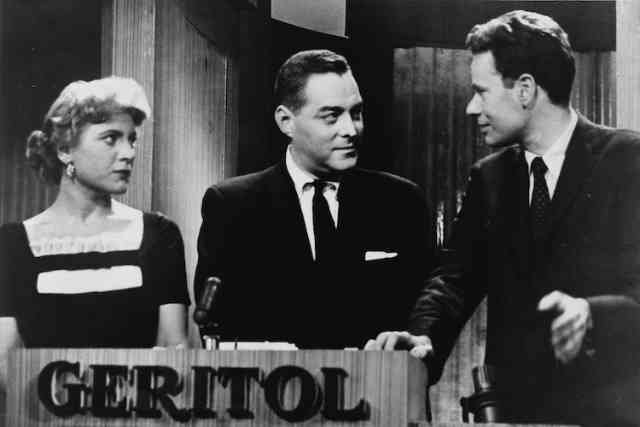
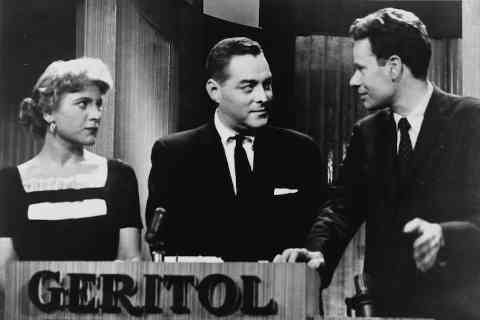
Those Americans who never trusted game shows to begin with were right about some of these early game shows. Some episodes were definitely rigged. Players like Columbia professor Charles Van Doren were given the answers and coached before the game went live. In 1994, Robert Redford directed the film Quiz Show about the scandal.
Due to scandals like that, the quiz show craze was dwindling by 1960. Rigging competition programs was made illegal. However, at least one gentleman didn’t give up on this addictive TV format. Three years later, actor Merv Griffin developed an idea that would change the game show world forever.
The Iconic Music
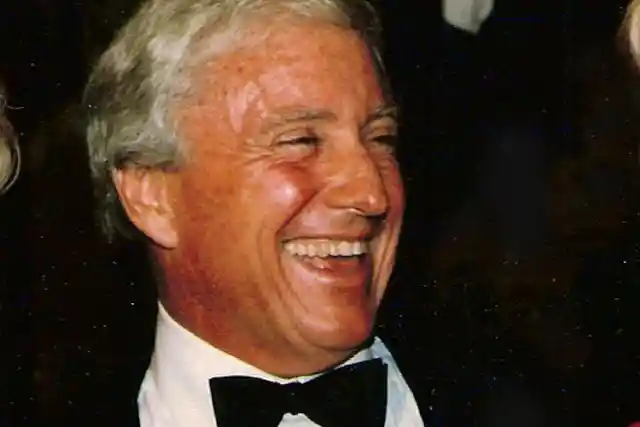
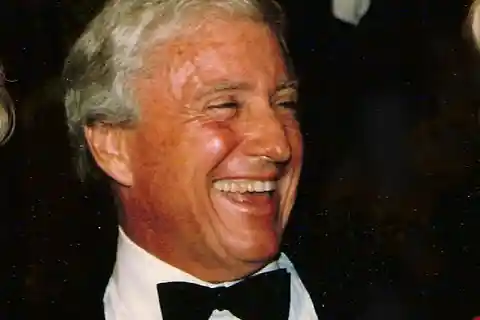
Both Jeopardy! and Wheel of Fortune were created by Griffin. However, some credit for Jeopardy! needs to go to Griffin’s wife, Julann, who came up with the show’s famous questions-as-answers format.
That wasn’t her only contribution, either. She also wrote the original main theme song to the show and even built a sample Jeopardy! set in the couple’s New York apartment when the project was still being developed.
A Lullaby Worth A Lot
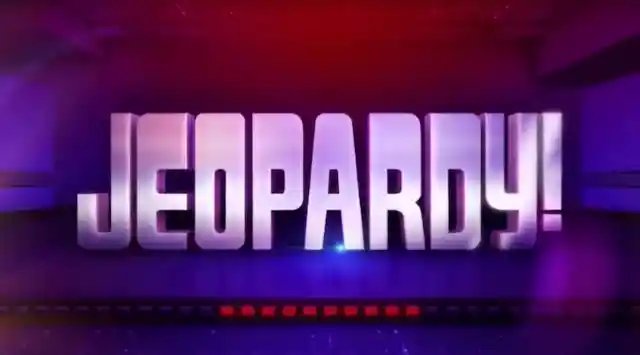
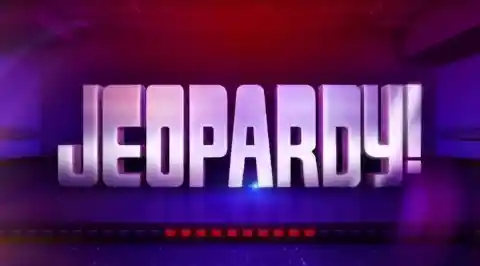
The show has had three main title themes over its long history of nearly 60 years. One piece of music has held strong throughout and that’s the track we still know and love today.
In the early days of the show, “Think!” was only played while contestants wrote their questions in the final round of play. The song became linked to Jeopardy! and when the Trebek version of the show premiered in 1984, “Think!” became the main title theme song.
Airlines And Airwaves
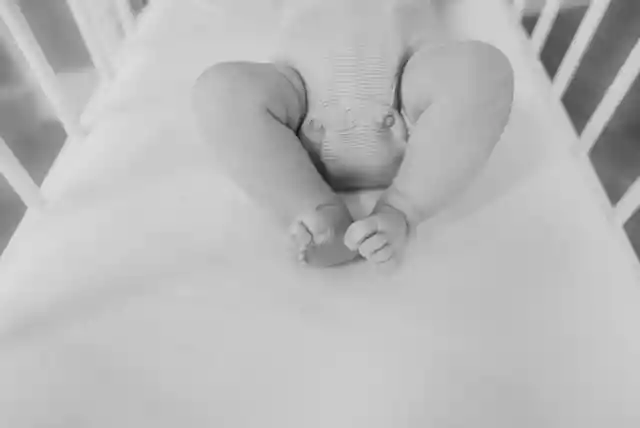

Griffin actually wrote the song as a lullaby for his son. Originally titled, “A Time for Tony,” the song became the soundtrack of his legacy. Variety has estimated that, at one time, the song had earned Griffin more than $70 million in royalties.
The song has lyrics, too. It goes as follows: “We’re in trouble, trouble deep! We’re imperiled and endangered. We’re in trouble, yes indeed. We are all in Jeopardy!”
From Canada To The United States
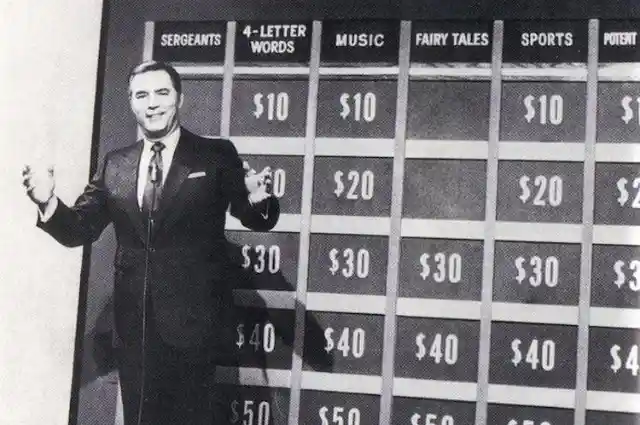
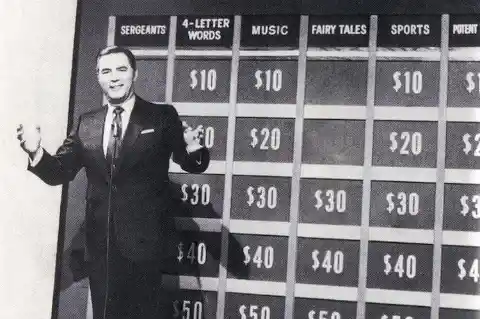
Jeopardy! is one of the longest-running American game shows still on the airwaves today. It came eight years after The Price Is Right, but 11 years before Griffin’s other hit show, Wheel of Fortune.
When he was first looking for a host for Jeopardy!, he saw a Trans World Airlines ad starring actor Art Fleming. Fleming seemed “authoritative, yet warm and interesting” to Griffin, so he invited Fleming to audition. The actor had never hosted on television before, but his agent advised him to “act like a game show host” and the not-so-helpful advice got him the job.
We’re Not In Hollywood Anymore
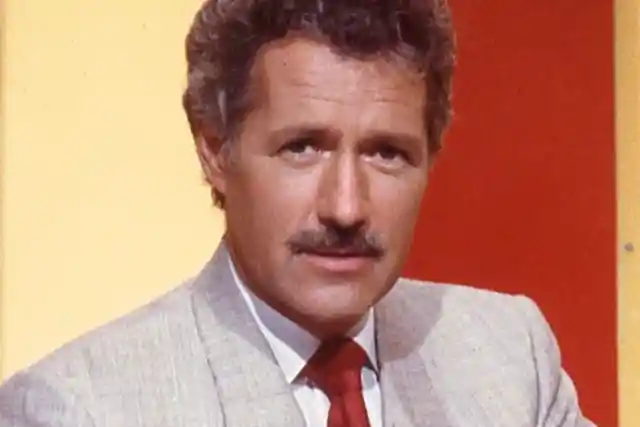
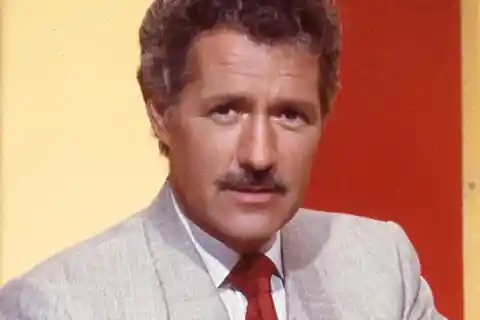
Alex Trebek was a TV announcer and news reporter in Canada in the 1960’s. During his younger days, he rose the ranks at the Canadian Broadcasting System. Eventually, he turned his attention to the United States.
Trebek was friends with actor Alan Thicke, a fellow Canadian. Thicke told Trebek to audition for a game show titled, The Wizard of Odds. Thicke wrote the music for the program. Trebek auditioned to be the show’s host and got the job.
How The Clues Are Created


Jeopardy! is actually not filmed in Hollywood, but it was at one point. When Trebek began hosting in 1984, the KTTV lot on Sunset Boulevard was the show’s home. The next year, it moved to Hollywood Center Studios.
In 1994, the production moved south to Culver City’s Sony Pictures Studio. The move made sense, considering that Jeopardy! is produced by Sony Pictures Television. Since that move, Wheel of Fortune has filmed on the stage right next door.
The Clue Crew
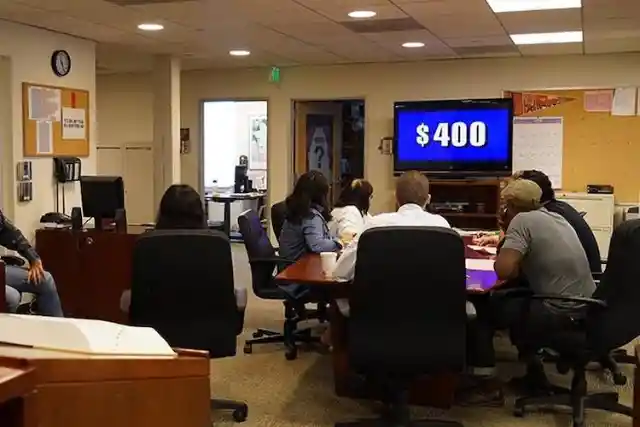
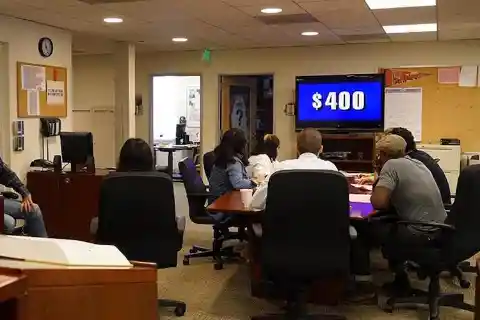
Every day, the Jeopardy! writers create two or three categories with five clues each. Each clue goes through a rigorous fact-checking and editing process. When everything looks good, they’re put onto the grid of blue screens.
“The eight of us as a group try to improve the material as much as we can,” Jeopardy! head writer Billy Wisse told Vulture. “We talk about whether we’ve done this fact too much, or talked about this person or this country too much recently, or whether this clue could be worded better. Or when I ordered the category, why on Earth did I put the easiest clue for number four or the toughest one as number two? It’s constant dialogue and comments to try to break the games down and make them as clean as possible.”
Researchers Behind The Writers


Part of the clue-hunting team is the Clue Crew. They have recorded video clues in more than 300 cities in 46 countries, including in all 50 states and on all seven continents. The crew has visited Presidential libraries, museums and businesses as diverse as FedEx and See’s Candies.
The Clue Crew usually gets the kind of “behind-the-scenes” access that isn’t available to the general public. Some examples are the NORAD Headquarters deep inside Cheyenne Mountain and endangered species breeding projects.
Double-Sourcing
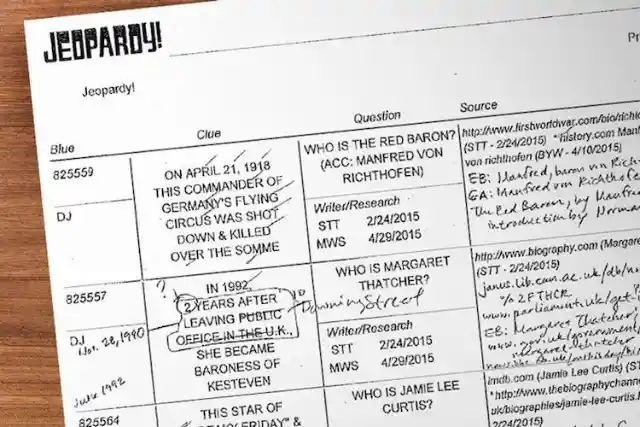
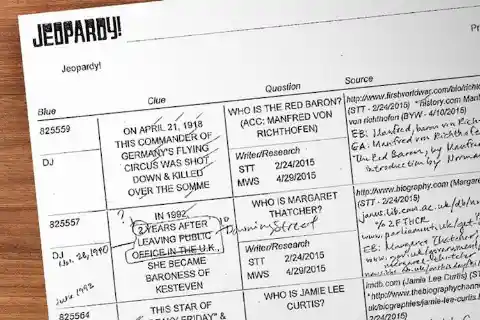
The writers have backup support for their clues. There’s a research team involved, too. Once clues get written, the researchers make sure they’re completely accurate.
In 1990, Bill Wisse started as a researcher. In an interview with AV Club, he broke down the position. According to him, the job really hasn’t changed much over time.
Color-Coding


Wisse said that “Each clue has a number of facts in it… and the writer has provided one source, at least, for every element within the clue—every name, every statement, every date.” The researcher’s job is to double-source all of those.
“Secondarily, [we] check to see if the clue is pinned, which is quiz-show speak for making sure that there is only one correct answer. Or that, if there’s an alternate answer that’s also acceptable, that it’s been anticipated.” Since there are around 14,000 clues written for each Jeopardy! season, you can see how much weight rests on their shoulders.
Assembling The Categories


In the early days, clues were laid out on color-coded index cards. Software technology has since replaced the index cards, but the color-coding remains.
The colors identify the four types of categories: academic, pop culture, wordplay, and kind of lifestyles, which is basically everything else. Things can get tricky as the categories are built.
Advice For Potential Contestants From Studies
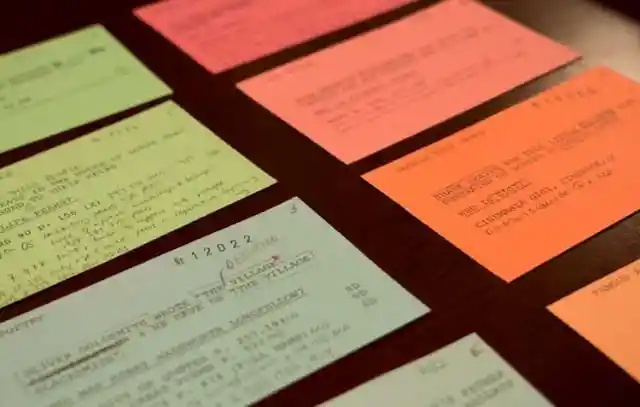
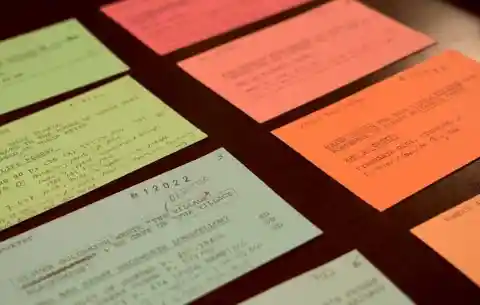
“You try to assemble them. And assemble them with a certain degree of balance and variety,” Wisse stated to AV Club. “If you have something old, you try to have something new. If you have a really narrow category, you try to balance that out with something that’s a little more general. It’s tricky.”
Academic is blue. Pop culture is pink. Wordplay is yellow. The lifestyle category has topics like housewares or consumer goods and is green.
Advice For Potential Contestants From Actual Contestants
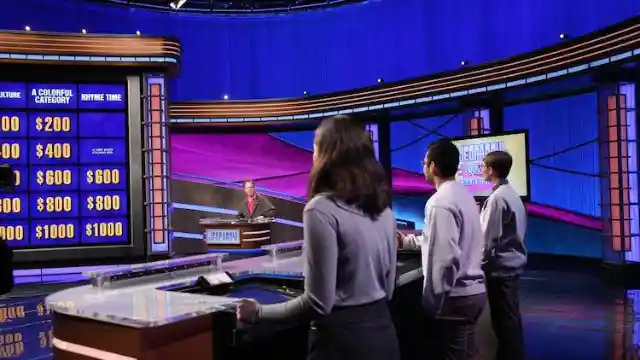
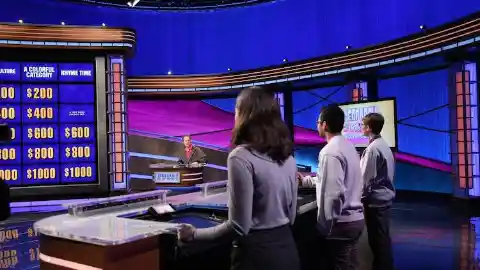
Almost anybody who has watched Jeopardy! has imagined themselves playing the game. They dream of winning thousands and having their moment of fame.
Since contestants can’t study every piece of trivia in existence prior to getting on the show, there are a few things they should consider. Of course general knowledge gained through an encyclopedia can come in handy, but according to two studies that looked at the entire Trebek-era Jeopardy! archive, the most common category on the grid is the wordplay clues known as “Before and After.”
Fast Reflexes
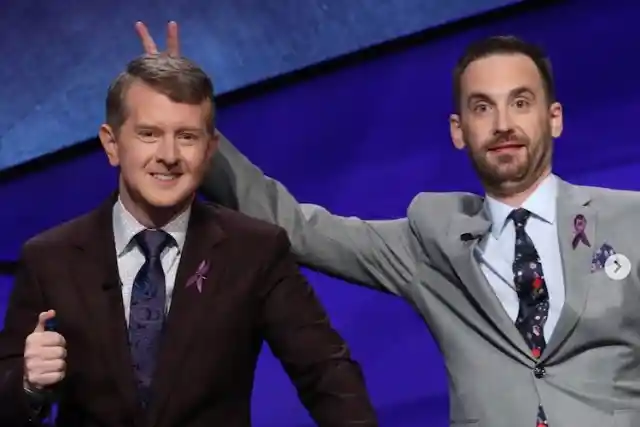
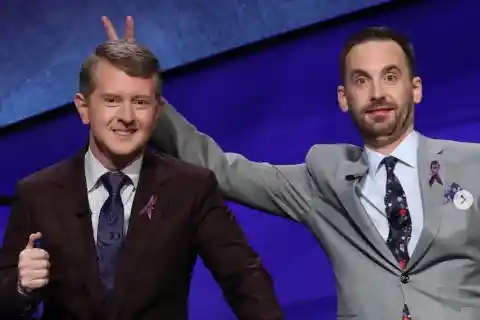
During a Reddit AMA, 74-time-champion Ken Jennings recommended memorizing the US presidents in order. His second-most important category for study is capitals of the world’s countries.
Former Jeopardy! champion Brad Rutter agrees with those strategies. “There’s usually one of those categories in every game,” he told Esquire. “I don’t think they’ve ever repeated a clue, but they do ask about the same stuff a lot.” Other topics recommended to study are cocktails, current Cabinet and Senators, and university towns.
Intense Filming Schedule
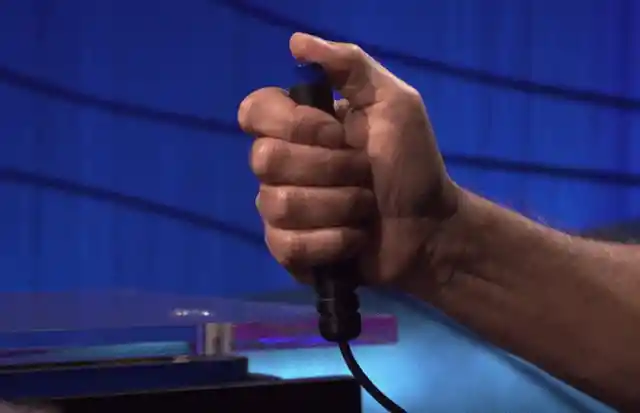
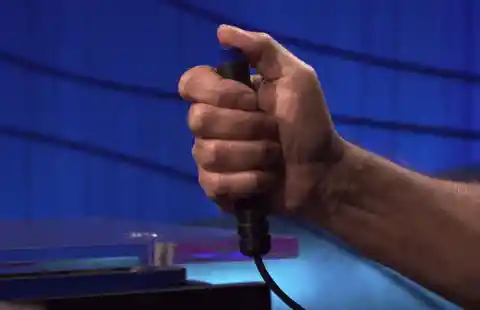
Super-quick buzzer skills are one of the keys to winning. Players must wait until the host finishes reading the question before the buzzers become active. An off-camera staff member presses a button that turns the buzzers on.
Two long lights appear on either side of the game board, which signify that the buzzers are active. Then, contestants race to hit their button for a chance to answer the clue. However, if the buzzer is hit too soon, it’s locked for a quarter of a second. If you’re too early or too late, there’s a high probability that someone else will answer the clue correctly.
How To Lose
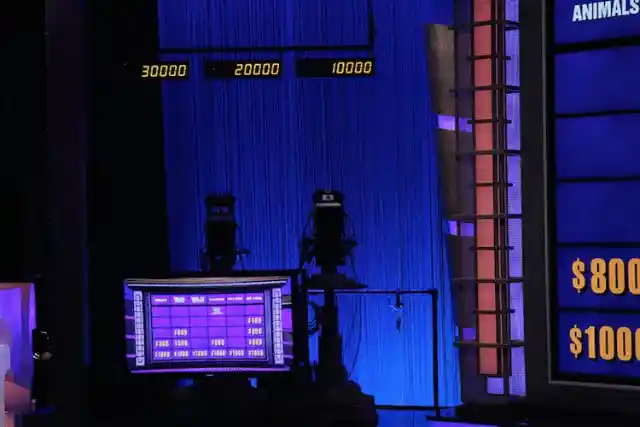
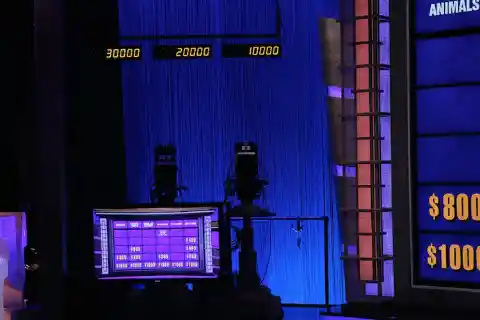
Jeopardy!’s filming schedule is quite hectic. The team shoots five episodes on a typical day, with two of those days happening every other week. One episode takes around 45 minutes to run through.
The show has a 46-week production schedule, so the time for a player to celebrate a win is limited. Winners are given only 15 minutes to go backstage and change clothes. They’re then pushed right back in to play the next game.
How To Win Against Humans
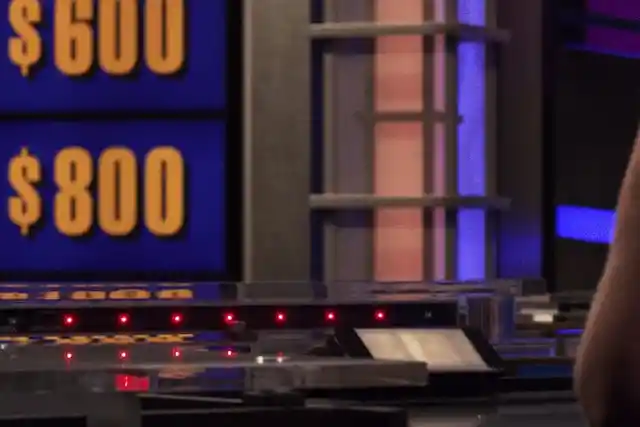
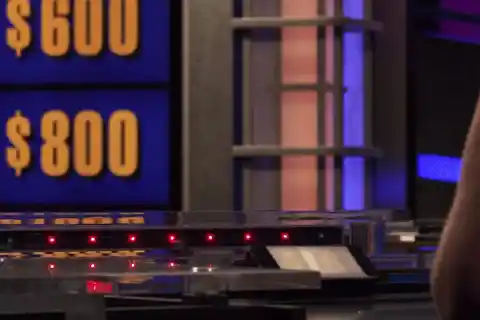
Ken Jennings, who holds the record for the longest-ever winning streak, says that waiting for the buzzer lights is a good way to lose. Contestants must sync their buzzing with the lights, rather than waiting for the lights and then hitting the buzzer. According to him, this gives a home-court advantage to the returning champion in every episode.
A contestant who buzzes at the perfect moment will see a confirmation light on the podium. Players are told to keep hitting the button until they see that light. False starts could make all the difference.
Layers of Defense
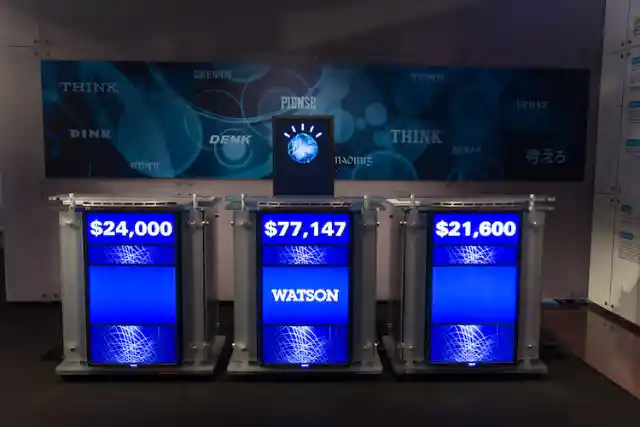

Jennings, who appears on many Reddit AMA interviews, recommended trying to read each clue before the host says them out loud. That allows more time to think and prepare to buzz in.
In 2011, he returned to the show to take on an IBM computer named Watson. Perhaps unsurprisingly, Watson won. According to Jennings, the 74-time champ, “It just comes down to buzzer mojo. Which is why Watson won so handily… pretty hard to have better response time than a circuit board.”
Unforeseen Answers
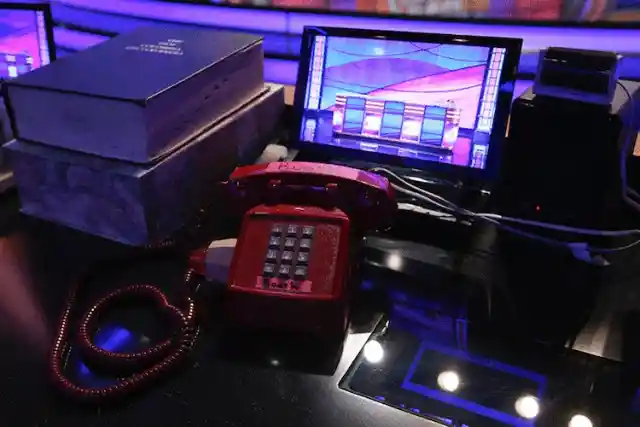
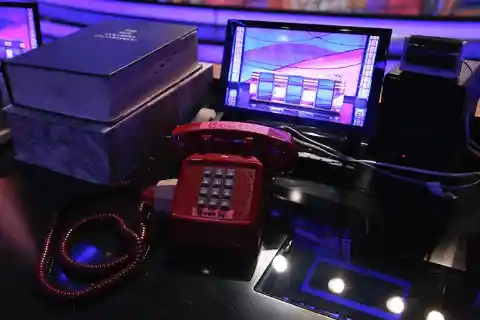
Similar to many competitions, Jeopardy! has a sort of instant replay review. The host has access to a panel of judges on the set that include producers and writers. They’re the second line of defense, should any confusion arise from odd contestant answers.
If even those judges need help, there’s a red phone that connects to the research team. The research library is 100 yards away, where the team follows the game.
Answers Can Cause a Dilemma
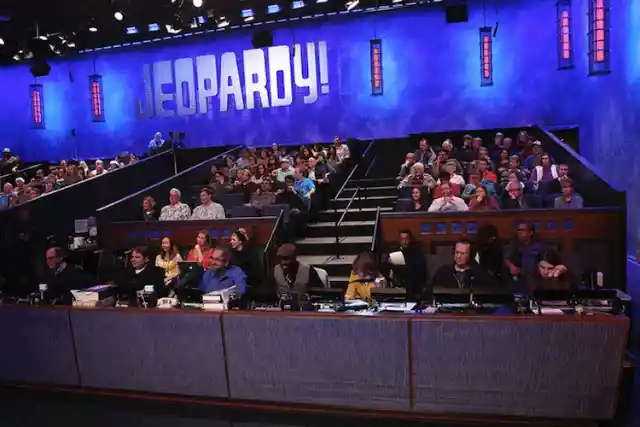
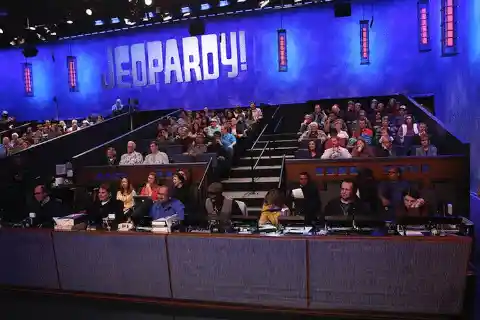
Once the research team receives a call, they’re already checking the contestant’s response. “Sometimes things come out of the blue and we just say, well, we never thought of that,” Wisse admitted. “We’ve never heard of it before, or sometimes the contestant reads the clue in a way that we hadn’t thought of.”
If it’s deemed an acceptable alternative or a different interpretation to the clue, the win is left up to the judges. While the supporting crew may be out of sight from the camera, they’ve always been an important part of the process.
Pronunciation Matters
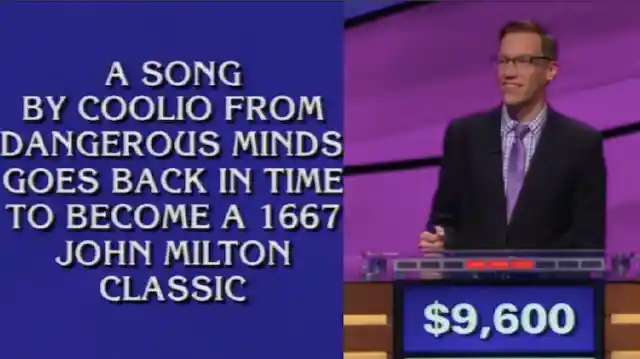
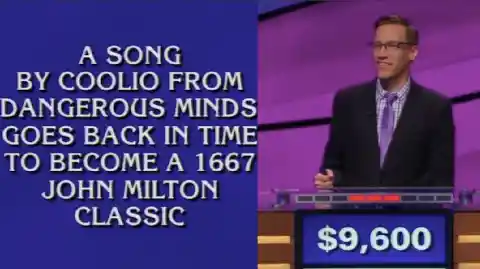
Every now and then, an answer’s pronunciation leads to a dilemma. Here’s an example from 2018. Nick Spicher buzzed in to answer this wordplay clue: “A SONG BY COOLIO FROM DANGEROUS MINDS GOES BACK IN TIME TO BECOME A 1667 JOHN MILTON CLASSIC.” The correct answer would’ve been “What is Gangsta’s Paradise Lost.”
Spicher said, “Gangster’s Paradise.” Since the words “gangster” and “gangsta” have two different definitions, he lost the round. That answer changed the overall meaning of the response.
Writing Answers
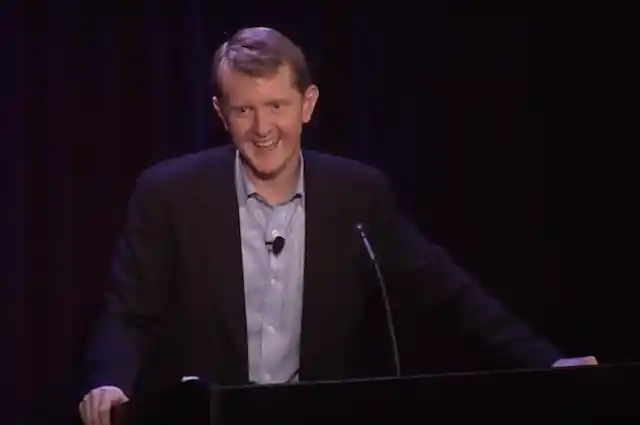
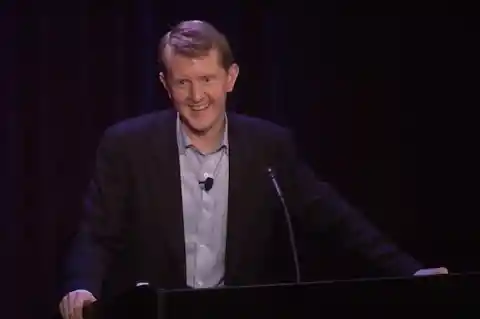
Regarding that dilemma, Ken Jennings stated “The Jeopardy rule is, contestant pronunciation doesn’t have to be correct, but it has to be a plausible pronunciation of the correct spelling. So I guess the ruling was, ‘gangster’ is not a plausible pronunciation of ‘gangsta,’ which seems right to me.”
Accuracy is important in game shows and Jennings knows that. He talked about the 1950’s quiz show scandal that paved the way for Jeopardy! in his reddit AMA. “It’s still a felony in America to rig a game show, due to the 1950’s scandals,” he said. “Getting a ruling wrong might not just be a lawsuit, it could conceivably get the FBI involved.”
Category-Switching
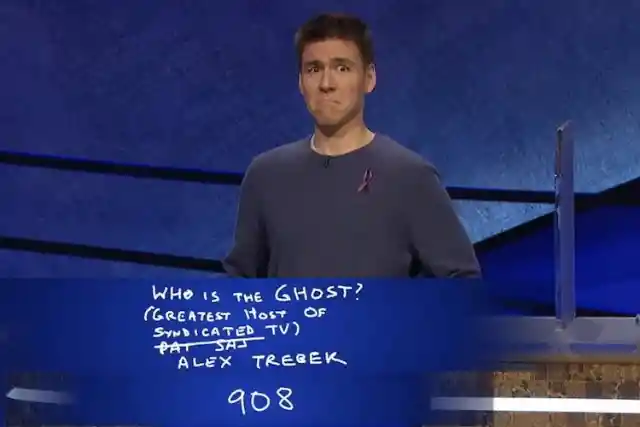
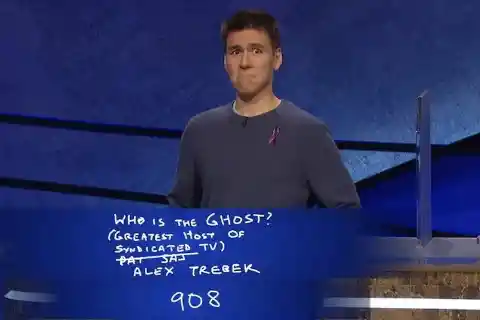
As mentioned, pronunciation matters, but it turns out that spelling only kind of counts. In the show’s “Final Jeopardy!” round, contestants have 30 seconds to write down their response to one last clue. The official rule for the round is “Written responses to the Final Jeopardy! clue do not have to be spelled correctly, but they must be phonetically correct and not add or subtract any extraneous sounds or syllables.”
There’s a big size difference between the pens contestants are given and the screens they write on. A big pen and small writing space can make it difficult to write legibly. Jennings told Cracked that “It’s like writing with an icicle on glass.”
Betting Big
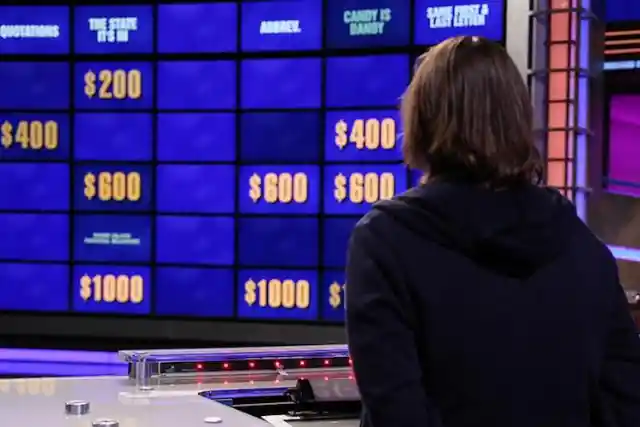
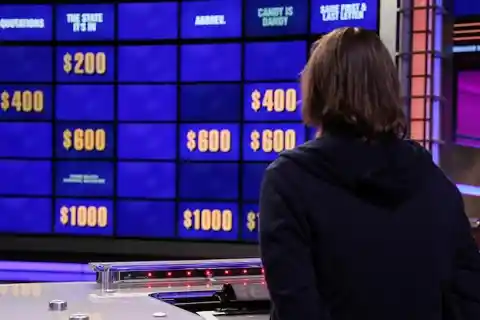
Every player has his or her own theories about how best to use Jeopardy!’s rules to win big. James Holzhauer jumped from category to category to knock out the most valuable clues early on. That strategy actually has a nickname: The Forrest Bounce. That name references the 1980’s Jeopardy! champion Chuck Forrest. He used that method to throw off his opponents, earning him the nickname “The Alexander Great of Jeopardy!”
It didn’t always work for him, though. “He jumped all over the board in an obvious attempt to throw off his opponents,” Alex Trebek pointed out to Vulture. “It worked. They never adjusted. But, you may remember, Chuck didn’t win the championship that year. So go figure.”
Conventional Wisdom for Final Jeopardy!
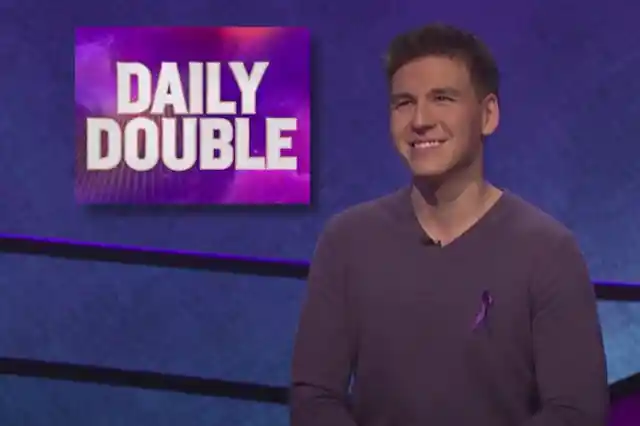
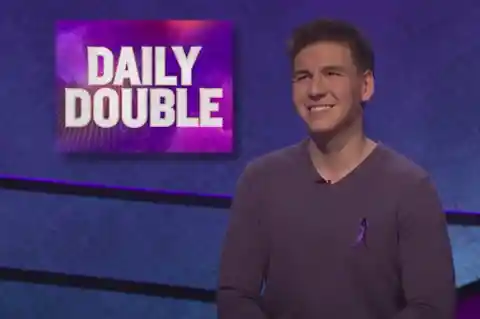
Holzhauer also bet big whenever he got the chance. He made record-shattering bets. The minimum bid for a Daily Double question is $5, for example.
That minimum bid is chump change to Holzhauer. On two different occasions, he wagered an unheard of $25,000 on Daily Doubles. For those counting, that’s 5,000 times more than the minimum.
A Blind Contestant
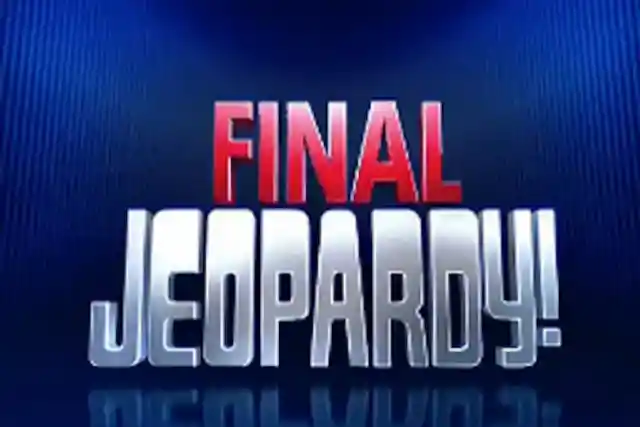
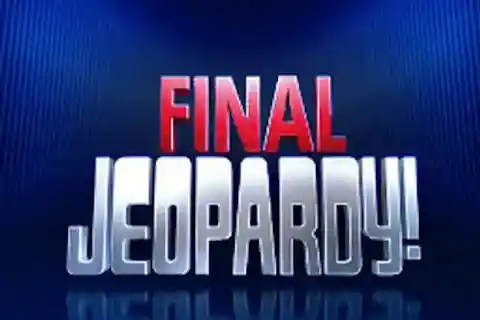
In the Final Jeopardy! round, contestants are allowed to wager zero. If you’re in the lead, you bet to win, so you bet whatever it takes to beat the second-place person by one dollar. If you’re in second place, you have the most math to do. Assuming the first-place contestant bets to win, the second-place person should bet an amount enough to defeat the third-place contestant by one dollar.
That is, if the third-place contestant goes all-in and has a correct answer. This gives the person in second place a chance to win if the first-place contestant messes up. Game theory is complicated, but can be used to gain an edge.
Jeopardy! On VH1
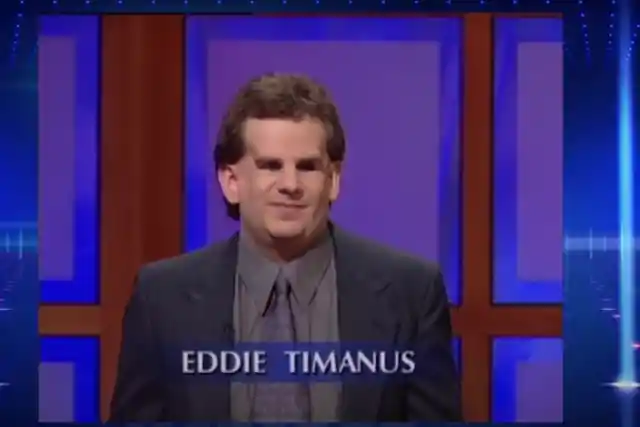
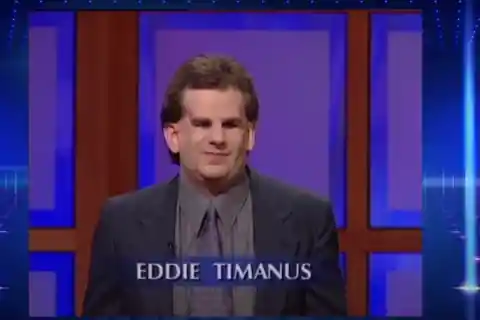
Eddie Timanus made Jeopardy! history in 1999 by becoming the show’s first blind contestant. Timanus is a sports journalist for USA Today, but he became a bit of a celebrity in the trivia world. After his five-show winning streak, he went on to participate in Who Wants to Be A Millionaire and showed up as a “lifeline” twice for that game show.
Some accommodations were made for him to compete on a more level playing field. He had a listing of the categories in braille and the show left out video answers for the games he was in. Trebek’s announcement of his opponents’ earnings during Daily Doubles and Final Jeopardy! helped Timanus know what to wager. Also, an audio cue replaced the lights that were referenced earlier. A “ding” told him when the buzzer was active. He returned to Jeopardy! for “Million Dollar Masters” in 2002, the “Ultimate Tournament of Champions” in 2005 and “Battle of the Decades” in 2014.
Jeopardy! For Kids
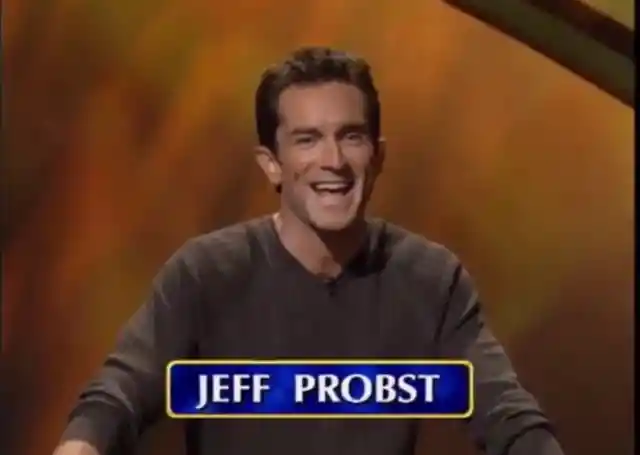
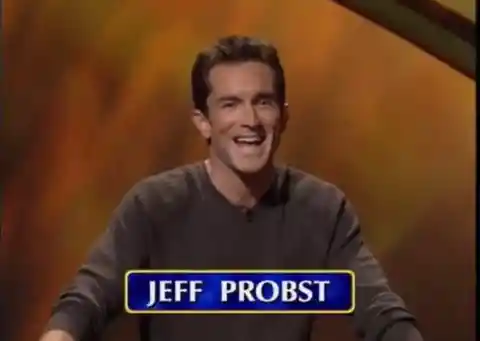
As the popularity of Jeopardy! grew, a variety of spinoffs were added to channel lineups. For example, Rock & Roll Jeopardy! premiered on VH1 in 1998. It had the same answers-as-questions format, but with a laid back music theme. Jeff Probst was named as the host.
“It’s kind of an unfair thing, but I basically got to watch what [Trebek] has been doing for 15 years and just copied him,” Probst explained to The LA Times. “There are a lot of little tricks that someone can steal.” The show ran for four seasons and 100 episodes. When it was canceled, Probst went on to host Survivor, so it didn’t go too badly for him.
Pop Culture References
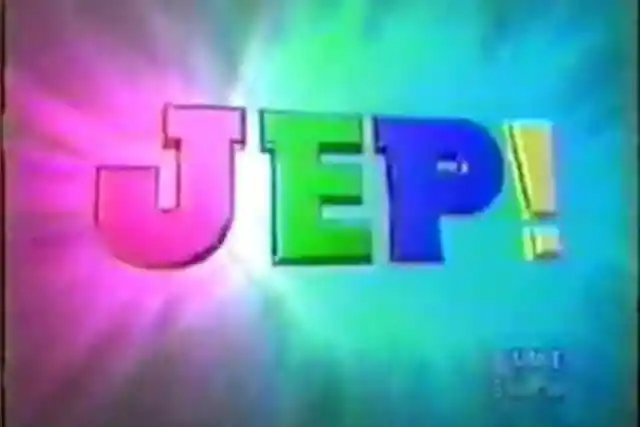
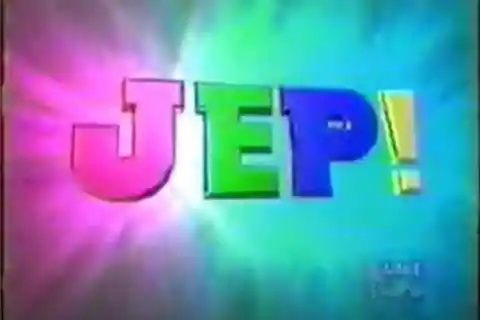
Also in 1998, a kid-friendly version of Jeopardy! debuted. Jep! Originally aired on the Game Show Network for two seasons before transferring over to Discovery Kids.
This version of the show was hosted by Porky Pig voice actor Bob Bergen. It was created by Scott Sternberg, who had earlier created Wheel 2000, a children’s version of Wheel of Fortune.
O’Brien’s Pub
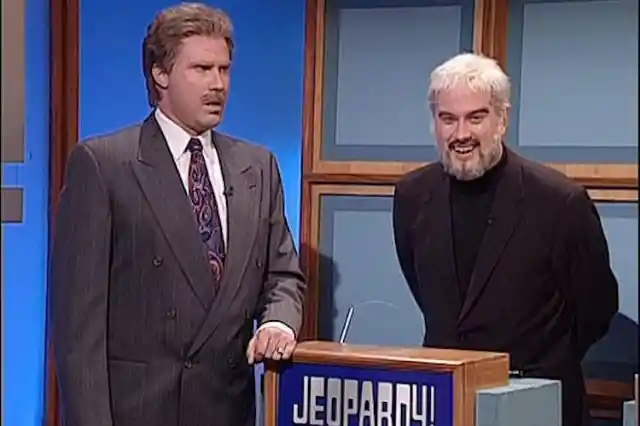
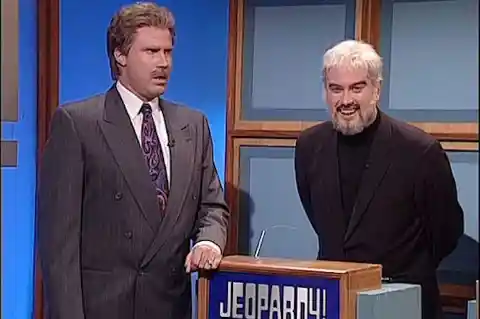
Jeopardy! has its fair share of shout outs in pop culture. Weird Al Yankovic made a song that paid homage to the show. From The Simpsons to GEICO commercials, the game show has shown up and made people laugh.
Saturday Night Live‘s sketches about Jeopardy!, especially the ones with Will Ferrell as Trebek and Sean Connery as a contestant, are classics. Travis Scott even danced to the Jeopardy! theme song in one episode of SNL.
The Desire To Continue
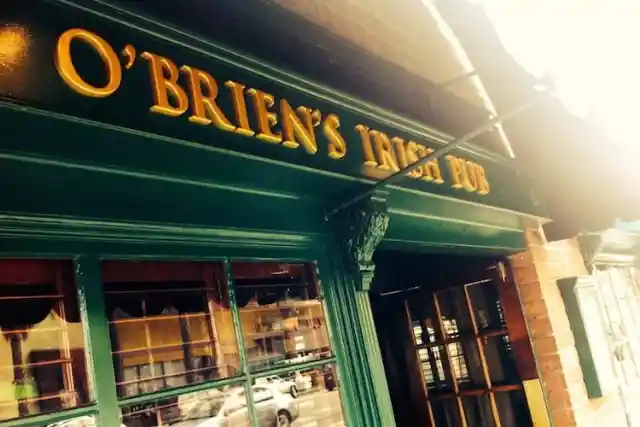

Jeopardy! alumni even have a trivia night in O’Brien’s Irish Pub in Santa Monica, California. Attendees on Wednesday nights often see familiar faces such as Buzzy Cohen and Pam Mueller. This isn’t normal bar trivia, either. The regulars from this trivia night take turns writing and asking the questions. Everybody else competes.
O’Brien’s trivia night wasn’t always so prestigious, though. Former Jeopardy! champion Jerome Vered, a former writer and researcher for the show Win Ben Stein’s Money, stopped in to compete in the trivia night back in 2006. Unsurprisingly, he won. Other former champions heard about the weekly event and made it a regular spot for the biggest brains from TV game shows.
Alex Trebek’s Legacy
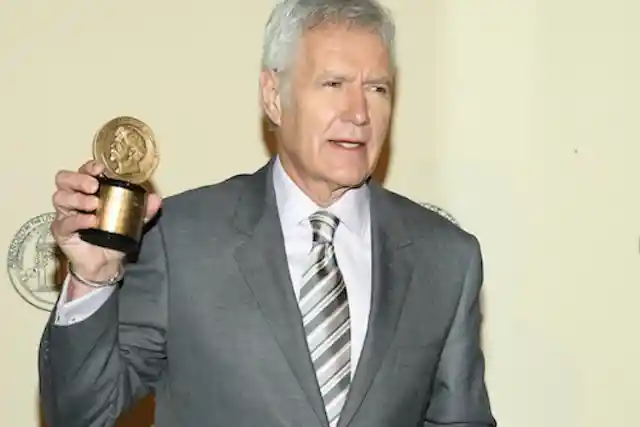
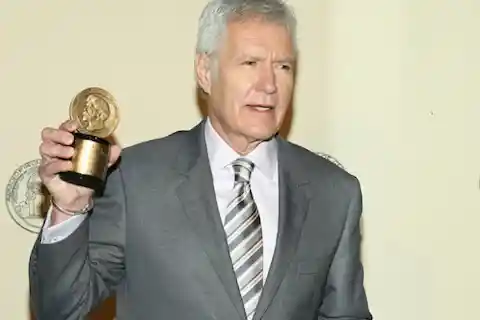
After suggesting he’d retire in 2020, Alex Trebek extended his contract through 2022. It was great news for Jeopardy! fans. Unfortunately, only a handful of months later, the longtime host revealed he had stage 4 pancreatic cancer.
The turn of events had people worried about his future both on the air and in general. It looked like he was going to be forced into retirement, regardless of his desires.
University of Ottawa
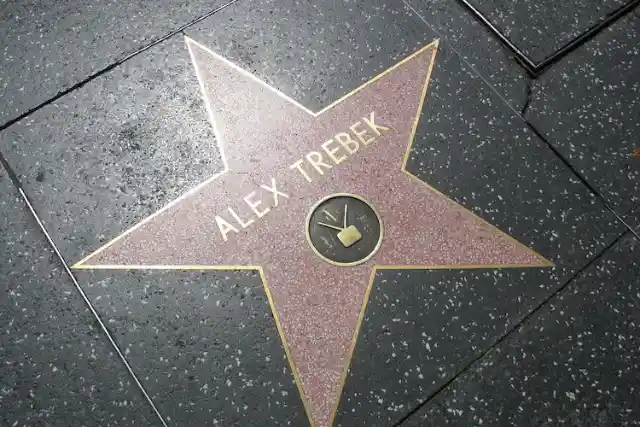
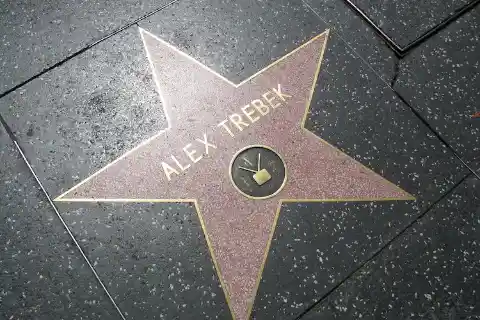
Alex Trebek was more than a game show host. He was an icon. He was even listed as one of the most trusted people in America, which showed how much the American people changed their views of game shows over the decades.
He won seven Emmy Awards and was nominated more than 30 times. In 2014, The Guinness Book of World Records gave Trebek a Guinness World Record for “most gameshow episodes hosted by the same presenter.” At the time of the announcement, he had hosted over 6,800 episodes. By the time he passed away, that number had grown to over 8,000.
Alex Trebek’s Personal Life
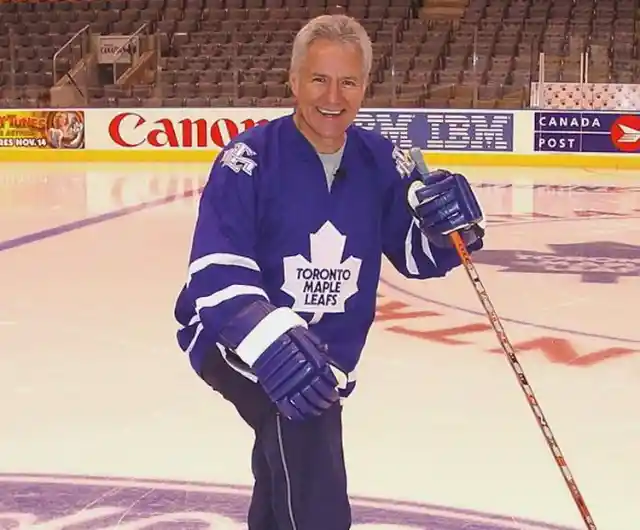

Born in Sudbury, Ontario, Trebek grew up to attend the University of Ottawa, where he earned a degree in philosophy. After graduating, he worked for the CBC, as mentioned earlier.
Trebek maintained strong ties to the university. He created scholarships, sponsored a Lecture Series, and supported the construction of Alumni Hall, which, in May 2015, was named after him. He was conferred an honorary doctorate, and he received the Meritas Tabaret Award for Alumni Achievement, the top award bestowed upon University of Ottawa alumni.
The Famous Champ
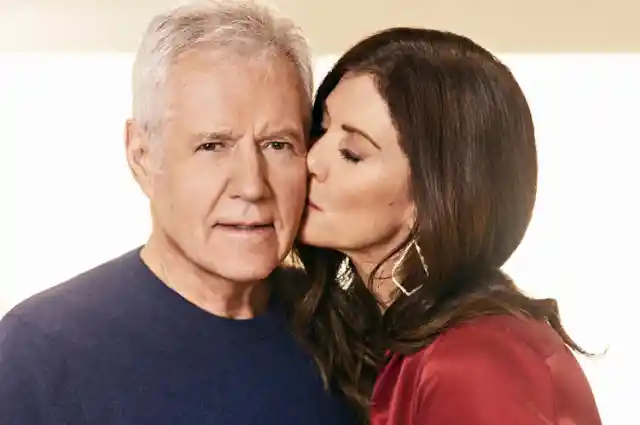
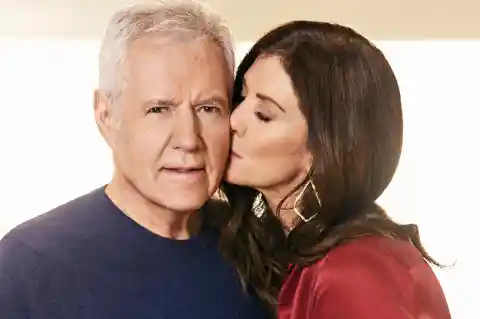
In March 2019, when he announced that he had cancer, he continued to host while undergoing treatment. He inspired countless fans with his upbeat and candid messages about his health. In July 2020, Trebek published a best-selling book, The Answer Is…: Reflections on My Life.” He donated all the proceeds to charity.
Trebek and his wife Jean resided in Los Angeles. They have two adult children. Emily is a real estate developer in Los Angeles. Matthew is the owner of OSO, a Mexican restaurant, and Lucille’s, a restaurant/bar, both located in Harlem, New York.
Lifetime Winnings
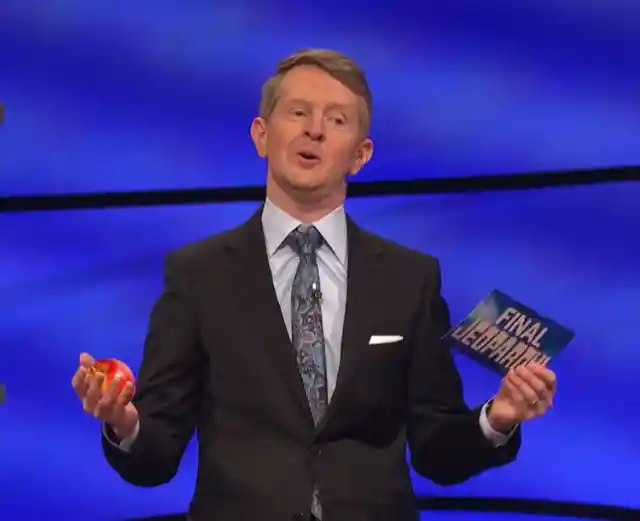
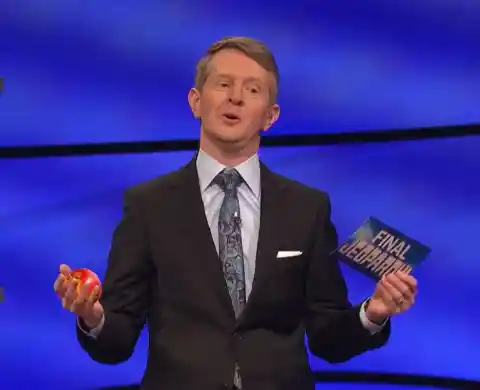
Ken Jennings actually grew up in Seoul, South Korea, where his father worked, and that was how he became a daily devotee of the show. He successfully auditioned for a spot on Jeopardy! in 2004 and went on an unprecedented 74-game victory streak worth $2.52 million.
He’s the author of a dozen books. “Brainiac,” about his Jeopardy! adventures, was a critically-acclaimed New York Times bestseller, as were his follow-up books Maphead and Because I Said So! He lives in Seattle with his wife Mindy, two children and two dogs.
Trebek’s Picks For Future Hosts
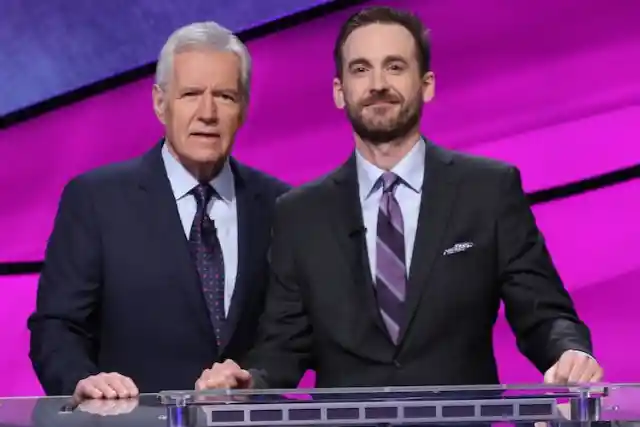
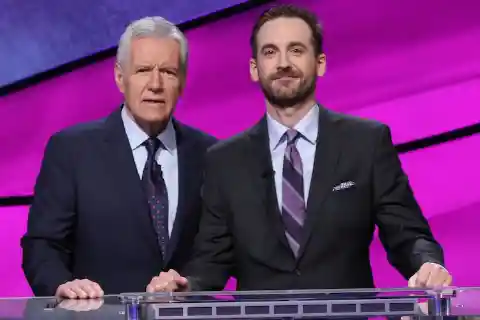
Jennings isn’t even in the top spot for lifetime winnings overall. He has amassed more than $4.37 million over the years from various Jeopardy! competitions.
Brad Rutter has made the most money from the show. The Lancaster, Pennsylvania native has $4,938,436 in lifetime winnings. James Holzhauer is the only other contestant to earn more than $1 million and he current has nearly $3 million overall.
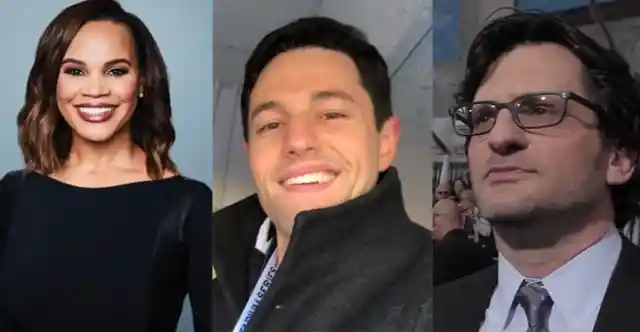

Before his passing, Trebek spoke to USA Today about who he would’ve liked to take over as the host. CNN’s Laura Coates, LA Kings announcer Alex Faust and TCM’s Ben Mankiewicz were named as potential successors.
“There are so many talented people out there that could do the job,” he said. While that may be true, nobody else will be synonymous with Jeopardy! like Alex Trebek. In August of 2021, the show announced that Jeopardy! executive producer Mike Richards would be the new host with neuroscientist and actress Mayim Bialik will host some primetime and spinoff specials of the show.